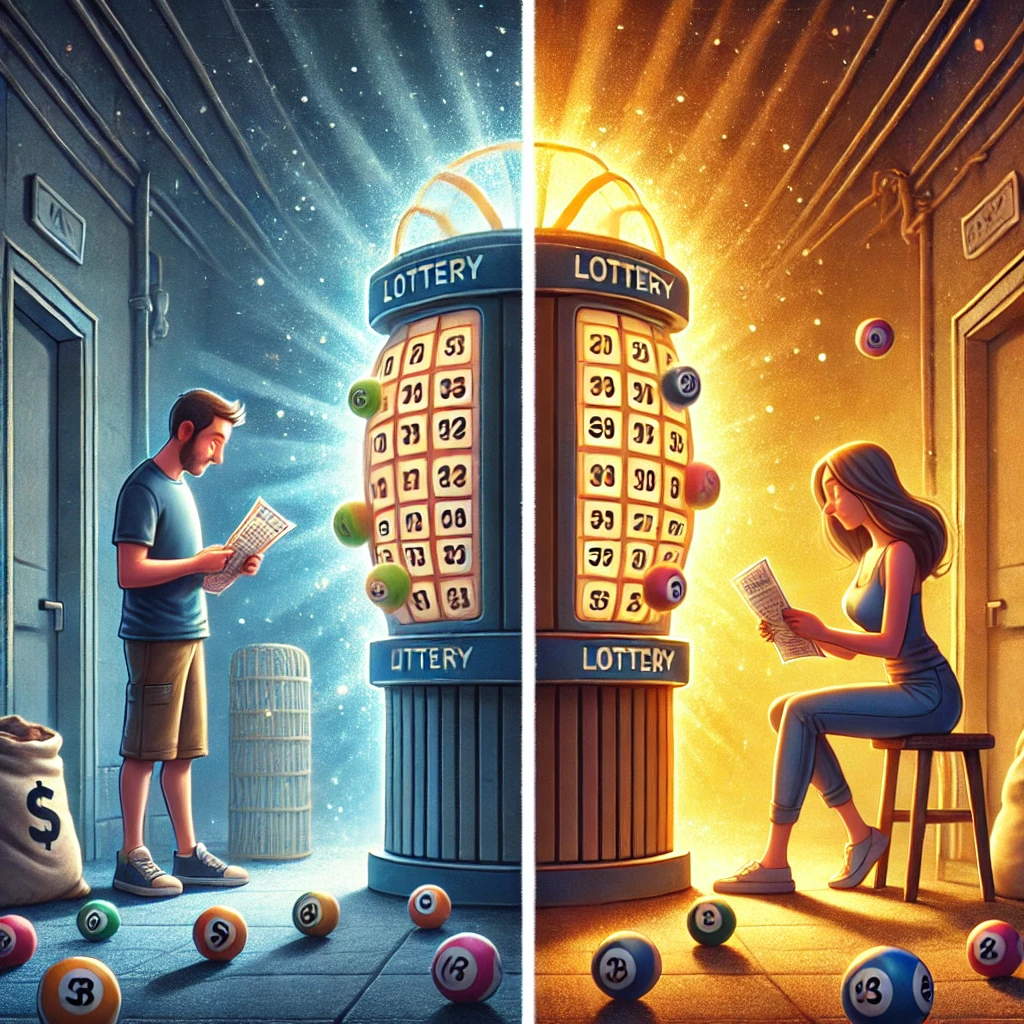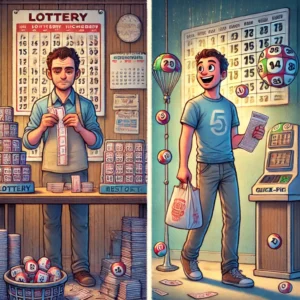Who Wins the Lottery?
Lotteries are a global phenomenon that attract millions of players. Bets on numbers, random draws, and the chance to win a huge jackpot give players hope that their lives might dramatically change overnight. One of the most intriguing questions surrounding lotteries is: who actually wins these games? Do people who play regularly have an advantage? Or is it those who bet only occasionally? And what role does number selection play? Is it better to bet the same numbers every time, or to rely on a random number generator? This article delves into these questions, analyzing different approaches and strategies that players use to increase their chances of winning.
Regular Players vs. Occasional Bettors
One of the biggest debates among lottery enthusiasts is whether regular players or those who participate only occasionally have a better chance of winning. At first glance, it might seem that frequent betting increases the odds of success. If someone buys a ticket every week, they obviously have more chances to win than someone who bets only once a year. But what is the reality?
Regular Players
People who play regularly benefit from having more opportunities to win simply because they buy tickets more often. Most lotteries are purely games of chance, so each ticket is a new and independent opportunity. This means that a regular player can accumulate multiple tickets over a period of time, technically increasing their chances of winning. However, from a mathematical perspective, the likelihood of winning a single draw remains very low. Even though regular players technically have more chances, their odds of winning in any given draw are still the same as those of any other participant.
Occasional Bettors
On the other side of the spectrum are players who only enter lotteries occasionally, for example, when the jackpot is particularly high. These people bet more for fun or are enticed by the prospect of an enormous payout, but they don’t have any strategy or regular plan. Even though they play less frequently, their odds of winning in any given draw are still the same as everyone else’s. The randomness of the game means that any person, whether they play once or a thousand times, has the same probability of success in that particular draw.
Statistics and Research
Studies on lottery winners show that there are people who win from both groups: regular players and those who have bet just once in their life. There is no evidence to suggest that playing more frequently increases the chances of hitting the jackpot. Most research indicates that because each ticket has the same probability, chance is the only true factor determining who wins.
Always the Same Numbers vs. Random Number Generators
Another crucial question lottery players face is number selection. Some players believe that betting the same numbers every time increases their chances of winning, while others prefer to pick random numbers for each draw. Let’s explore both approaches.
Betting the Same Numbers
Many players choose their “lucky” number or a combination of numbers and stick with it for every draw. These numbers might be based on personal anniversaries, special dates, or simply favorite numbers. The logic behind this approach is that sooner or later, this combination of numbers must come up.
However, from a mathematical perspective, this approach doesn’t really affect the probability of winning. Lotteries are purely random, and each draw is independent of the previous ones. This means that no matter how often a player uses the same numbers, the odds of them being drawn remain the same for each draw. Still, some players stick to this strategy because they believe it brings them luck or because they prefer not having to think of new numbers for every draw.
Random Number Generators
On the other hand, there are players who opt for random numbers in each draw. Many lottery systems offer a “quick pick” option, where a random combination of numbers is automatically generated for the player. This approach is very popular as it saves time and eliminates the need to manually choose numbers.
From a probability standpoint, this approach is just as effective as betting the same numbers every time. Random numbers have the same chance of being drawn as any other combination. Players using random number generators are neither advantaged nor disadvantaged compared to those sticking with the same numbers.
Is There an Optimal Strategy?
Taking everything into account, it may seem that there is no definitive strategy for increasing your chances of winning the lottery. Lotteries are designed to be games of chance, where each player has an equal opportunity regardless of how often they play or which numbers they choose.
However, there are a few things that can affect the overall game experience. Some players choose less popular combinations of numbers in the hope that if they do win, they won’t have to share the jackpot with other winners. The most commonly selected numbers tend to be those that appear on calendars (such as birth dates), so betting on numbers higher than 31 could theoretically reduce the chances of having to split the prize. Still, this tactic doesn’t increase the likelihood of winning; it only minimizes the risk of sharing the prize.
Examples of Lottery Winners
Lottery history is full of stories of people who have won the grand prize. Some of them played regularly for many years, while others bought their first ticket and won. For example, in 2012, a man from England won £148 million in the Euromillions lottery after playing the same numbers for many years. On the other hand, there’s the story of a Canadian woman who won a $50 million jackpot after buying her first-ever lottery ticket.
Conclusion
Lotteries are fun and exciting games that entice players with the promise of huge payouts. Although it may seem that playing more frequently or choosing certain numbers increases the chances of winning, lotteries are purely games of chance. Regular players, occasional bettors, those who bet the same numbers, and those who use random number generators all have the same odds of winning in each draw. At the end of the day, luck and randomness are what decide who walks away with the prize.





